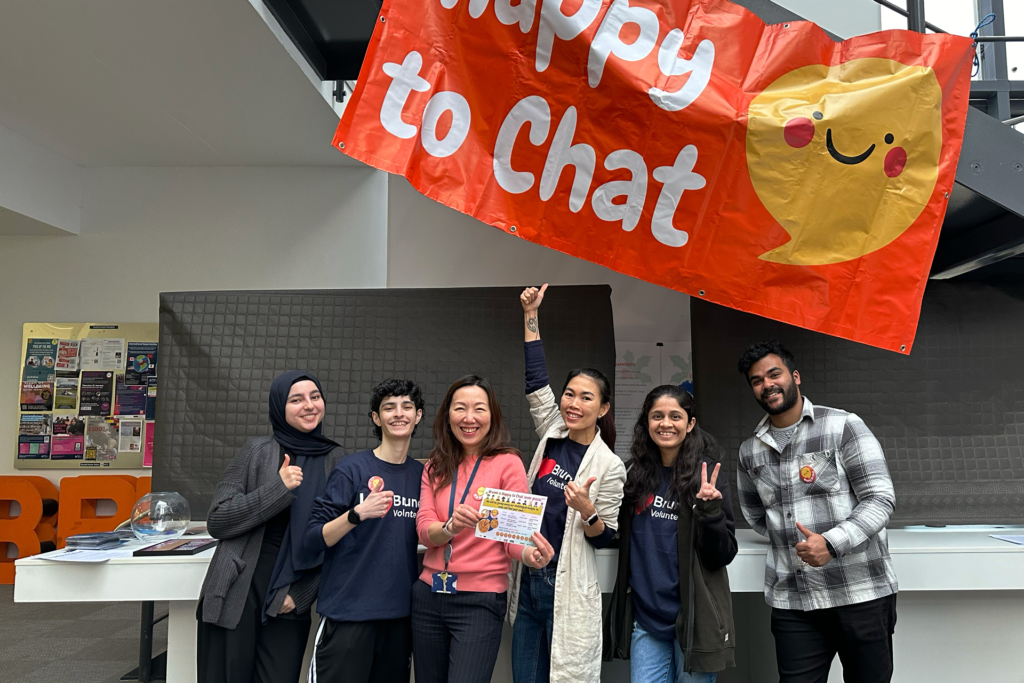Are you an international student in the UK navigating the challenging terrain of part-time job hunting? As someone who has spent over seven months in the UK, I understand the hurdles of securing part-time work. The process can be daunting and discouraging, particularly with the restrictions of a student visa limiting us to 20 hours of work per week during term time. Factors in transportation logistics, commuting considerations, and the job search journey become even more complex.
Having experienced the seamless part-time job market in places like Saigon, Vietnam, I found the transition to the UK job landscape to be a stark contrast. Months of research, countless applications, and multiple rejections later, I landed a role as a front-of-house member at a restaurant at Heathrow Airport. Additionally, I occasionally work as an interpreter, bridging the gap between English and Vietnamese.
Understanding fellow international students’ struggles, I created this blog article offering insights and practical tips for navigating the UK part-time job market. Through my journey, I have gathered valuable lessons and strategies that I am eager to share with you. Join me as we unravel the intricacies of job hunting as an international student and embark on a journey towards finding fulfilling part-time opportunities in the UK.
Utilise your existing resources around you first!
Tapping your existing resources can be a game-changer when navigating the UK job market. Reach out to professors, student alumni, and career advisors for valuable insights and potential job leads.
Take advantage of university career services if your university has one, and sign up for the Jobs Opportunities newsletter, which can keep you in the loop with available positions.
For example, Brunel University London has a Job Shop department that provides information on part-time jobs for students on and off campus. I landed my front-of-house and interpreting employment through the Job Shop’s newsletter.
Additionally, Brunel University has a Professional Development Department where we can book a 30-minute consultation with a Career advisor from CV and Cover Letter check to guidance and advice.
Explore Job Boards and Websites
Remember, it’s essential not to rely on just one job search method. Explore job boards and specialised sites catering to students and part-time job seekers, such as Reed, Indeed, TotalJobs, Brightsparks, Stint, Hap Solutions, and Event Staffing. While LinkedIn didn’t directly lead to job opportunities, I still use it to connect with professionals and stay informed about the job market.
Additionally, LinkedIn is a powerful platform where I share highlights of my volunteering activity for Happy To Chat and key takeaways from my MBA journey. Remember, LinkedIn is not like other social media like Facebook, Instagram or TikTok, and it will be the first platform where your prospective employer would have the first digital glance of who you are; hence, keep it professional and keep your private life to yourself or use appropriate platforms.
Before applying for a role, it’s crucial to research the organisation and understand its values. Even for part-time positions, there may be opportunities to transition to full-time in the future. I approach all work, whether volunteering or part-time, with dedication and a desire to thrive in a supportive environment. Hence, once I decide to do something, I am fully committed.
By utilising your networks, university resources, and online job boards, you can enhance your job search journey and find a role that aligns with your passion and goals.
When showcasing your passion and personal goals, you must reflect your characteristics and personality on a one-page or top two-page CV to make a solid first impression on prospective recruiters. In the next section of this blog, we will delve into how to tailor your CV to align with specific job roles.
Crafting Your CV
CV crafting is a work of art, even for a part-time job; reflecting on your skills, experiences, and passions is good practice to identify the type of job that aligns with your strengths.
Initially, I applied for any job to make ends meet, and I soon realised that a scattered approach could have been more effective. Recruiters can easily spot mismatches between your CV and the roles you’re applying for. Therefore, it’s crucial to take the time to identify your strengths and what value you can bring to a position.
Once you’ve pinpointed your essential skills, keep your CV concise, ideally limited to one page, and use bullet points to showcase your responsibilities and achievements. If you are still pursuing your studies at the university, consider placing your education section before the experience section to emphasise your academic background.
As you begin your job search, remember these helpful tips:
Dos:
- Tailor your CV for each job application
- Be honest about your background and experience
- Start your bullet point with an “action” word
- Embrace rejection as a learning opportunity (I had roughly over ten rejections)
- Apply for roles that resonate with your skills and interests
- Check misspellings and grammar
- Ask someone who has experience with recruitment or is familiar with the labour market to check the CV for you
- Learn from feedback and rejections
Don’ts:
- Oversell yourself (being overqualified is a real thing, at least in my case)
- Falsify your skill sets, experience or passion
- Fabricate your interests and strengths
In addition to preparing a solid job application, it is crucial to anticipate the recruitment process requirements, which may include video call interviews or short video introductions (Brightspark).
Remember, your unique background and skills are valuable assets, so put yourself out there and showcase your capabilities confidently.
As a student in the UK, you have the flexibility to work part-time up to 20 hours per week during term time and full-time during academic breaks. Remember that the job application process may take time, so patience and perseverance are vital virtues. Additionally, ensure that you have a National Insurance Number, complete the right-to-work check, and obtain a UK criminal record check if necessary for the role you are pursuing.
Preparing for the Job Interview: My Tips for a Successful Interview
Congratulations on securing an interview invitation after your application process, no matter how lengthy it may have been. Now, let’s focus on preparing you for the upcoming job interview.
Job interviews can be anxiety-inducing, but with the proper preparation and mindset, you can excel in your interview for a part-time position. Below are some tips to assist you in feeling confident and showcasing your best self during the interview process:
Research the Company (Before going to the interview, of course)
Take the time to research the company you are interviewing with. Understand their products, services, values, and recent news or developments. This will show your potential employer that you are genuinely interested in the role.
For example, during the interview, I showcased my enthusiasm for the restaurant by sharing its name’s significance, history, and values. I highlighted my passion for serving others and emphasised my extensive background in customer service. I demonstrated my preparedness and genuine interest in the front-of-house role by aligning my values with the company’s customer-centric approach. Furthermore, my love for food, particularly Japanese cuisine, made expressing my enthusiasm for the position effortless.
Dress Appropriately
Dress professionally and appropriately for the interview, even for a part-time job. Choose an outfit that suits the company’s dress code and reflects your professionalism.

In the UK, it is noted that neutral colours are favoured, particularly for customer service roles. It is advisable to dress appropriately to reflect good manners. Even as a student, demonstrating maturity during interviews can be advantageous as it indicates a serious approach towards the job opportunity.
Practice Common Interview Questions
Prepare responses to common interview questions such as “Tell me about yourself,” “What are your strengths and weaknesses,” and “Why do you want to work here?” Practice your answers out loud to feel more comfortable during the actual interview.
It is crucial to maintain confidence and avoid overstating your qualifications. When asked, “Why do you want to work here?” it is essential to provide a clear response.
For instance, I expressed my passion for customer service, enjoyment of the hospitality industry’s dynamism, and love for food. I also mentioned my appreciation for the company’s values by stating its name.
Convey that you believe the company offers a positive working environment where you can apply and enhance your communication and customer service skills.
Ask Questions
Prepare thoughtful questions to ask the interviewer about the company, the team, or the role. Asking questions shows interest in the position and helps you gather more information about the job.
For example, inquire about the availability of flexible working shifts that align with your educational timetable. Additionally, you could ask about any food provisions during shifts, especially in the hospitality sector.
Suppose you need help deciding what to ask. In that case, a reliable question is, “Is there any other information I should be aware of regarding the job?” This query prompts the recruiter to cover essential points and ensures you have all the necessary information.
Practice Good Body Language
Pay attention to your body language during the interview. Maintain eye contact, sit up straight, and offer a firm handshake. Non-verbal cues can convey confidence and professionalism.
Be Honest
Be truthful in your responses and avoid exaggerating or misrepresenting your qualifications. Honesty is vital to building trust with your potential employer.
During the interview, I was questioned about my interest in working full-time for the company after graduation. In response, I conveyed that I could not provide a truthful answer at that moment as I had yet to commence working there, nor had I gained an understanding of the company’s culture and work environment. Therefore, I expressed that it was premature for me to decide at that point. The recruiter appreciated my response, stating, “Fair enough, and thank you for your honest answer.”
Stay Calm and Confident
Remember to stay calm, breathe deeply, and believe in yourself. Confidence is critical during an interview, so trust your abilities and present yourself in the best light possible.
Set Yourself Apart from Other Candidates
If you want to stand out in the job market (both part-time and full-time) as a university student, consider exploring volunteering opportunities that align with your interests and passions.
Sharing your volunteer experience during an interview can leave a lasting impression on your potential employer. For example, by highlighting my involvement in community activities like the Happy To Chat event, a project collaborated between Health Science and Brunel Business School to raise awareness of mental well-being and combat loneliness, I am showcasing my initiative, compassion, and willingness to contribute to a more significant cause.

Furthermore, one of the most significant benefits of volunteering at university is the opportunity to showcase your commitment, passion, and dedication beyond academic achievements. When employers inquire about your extracurricular activities (most likely, they will ask this question), such as volunteering, they are looking for a well-rounded individual and someone who possesses essential soft skills like teamwork, communication, empathy, and leadership.
Final Thoughts
Navigating the part-time job market as an international student in the UK can be daunting and challenging. However, armed with the insights and practical tips shared in this blog, you are equipped to tackle these obstacles head-on. From utilising existing resources and job boards to tailoring your CV and excelling in job interviews, you have the tools to stand out in the competitive job market.
Remember, your unique background and skills are assets that can set you apart from other candidates. Don’t be afraid to showcase your passion, dedication, and commitment through volunteering opportunities. These experiences can leave a lasting impression on potential employers and demonstrate your well-roundedness.
With patience, perseverance, and confidence, you can find fulfilling part-time opportunities that align with your goals and passions while studying in the UK. Embrace the journey, and remember that your determination and hard work will pay off.
Thank you for joining me on this exploration of job hunting as an international student. I wish you success and fulfilment in your part-time job search, and may your time in the UK be enriched by the experiences and opportunities that come your way.

